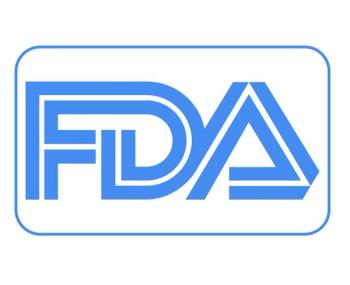
Methylphenidate Ups Arrhythmia Risk in Kids
The relative risk of CV events with methylphenidate is generally low; however risk of MI may be higher in the early days after initiation.
Youth have a significantly increased overall risk of arrhythmia with methylphenidate use that is higher in those with congenital heart disease as well as during the first few days after starting treatment, according to a Korean study published online on May 31 2016 in the British Medical Journal.1
While the overall risk for myocardial infarction (MI) is not significant, the risk increases significantly about one week after initiating methylphenidate.
“Methylphenidate exposure in children/young people with diagnosis of ADHD is associated with arrhythmia and potentially with myocardial infarction in specific time periods of use. With the increased use of drugs for ADHD globally, the benefits of methylphenidate should be carefully weighed against the potential cardiovascular risks of these drugs in children and adolescents,” wrote first author Ju-Young Shin, PhD, a postdoctoral research fellow at the Jewish General Hospital, Montreal, QC, Canada, and colleagues.
Case reports have linked methylphenidate to adverse CV events, including life threatening heart failure, although large retrospective cohort studies have failed to find an association between methylphenidate and serious CV events.2 The low absolute risk of CV events in youth, however, may complicate research in this area.
As a self-controlled case series, the study is the first to evaluate the links between CV events and methylphenidate exposure and nonexposure within the same individual. As such, it was designed to evaluate whether methylphenidate triggers CV events, whereas past studies have been limited to comparing exposed to unexposed individuals.
The study used information from nationwide South Korean health insurance claims databases. It included data from 1224 patients aged 17 years and younger who had a recorded diagnosis of ADHD, experienced a CV event, and had at least one prescription for methylphenidate between January 2008 and December 2011. Boys constituted 75-80% of the groups in the study. Researchers evaluated the temporal links between initiating methylphenidate and arrhythmia, hypertension, MI, ischemic stroke. and heart failure during exposed vs unexposed periods.
Key Results:
⺠Arrhythmia: Significantly increased overall risk during all time periods exposed to methylphenidate (incidence risk ratio [IRR] 1.61, 95% confidence interval 1.48 to 1.74)
-- Highest risk during days 1 to 3 after starting methylphenidate (day one [IRR]: 2.01; day two [IRR]: 1.74; day 3 IRR: 2.31)
-- Highest risk with congenital heart disease vs without (IRR 3.49 [2.33 to 5.2) vs 1.34 [1.23 to 1.46])
⺠Myocardial infarction: No significant increased overall risk (IRR 1.33, 0.90 to 1.98)
-- Significantly higher risk between days 8 and 56 after starting methylphenidate
. Day 8-14: RR 2.50 (1.49-4.20)
. Day 15-28: RR 1.95 (1.17-3.23)
. Day 29-56: RR 2.57 (1.665-4.02)
⺠Hypertension: No significantly increased overall risk
-- Significantly higher risk on days four to seven after starting treatment (RR 1.27, 1.04-1.59)
⺠Ischemic stroke: No significantly increased overall risk
⺠Heart failure: No significantly increased overall risk
⺠Low vs high doses of methylphenidate : No differences in effect
The authors noted that these results are consistent with the mechanism of action of methylphenidate and its effect on heart rate, with delayed effects expected for MI and more immediate effects expected for arrhythmia. While the relative risk of MI with methylphenidate exposure was increased, they pointed out that the absolute risk is likely low.
They concluded: “Previous research has found no evidence of increased risk of stroke or myocardial infarction with methylphenidate, which was consistent with our overall risk. Our time-based risk analysis, however, suggests that the risk of myocardial infarction might be higher in the early risk periods. This result is of concern and warrants further research.”
Take Home Points
⺠Youth have a significantly increased overall risk of arrhythmia with methylphenidate use, which is higher in those with congenital heart disease as well as during the first few days after starting treatment.
⺠While the overall risk for myocardial infarction is not significant, the risk increases significantly about one week after initiating methylphenidate
⺠The overall risk for hypertension, ischemic stroke, and heart failure were not significantly increased
⺠More research is needed
The authors report no conflicts of interest.
References:
- Shin JY, Roughead EE, Park BJ, et al.
Cardiovascular safety of methylphenidate among children and young peopl with attention-deficit/hyperactivity disorder (ADHD). Nationwide self controlled case series Controlled Case Series Study. BMJ. 2016;353(i2550) - Martinez-Raga J, Knecht C, Szerman N, et al.
Risk of serious cardiovascular problems with medications for attention-deficit hyperactivity disorder. CNS Drugs. 2013;27:15-30. doi: 10.1007/s40263-012-0019-9.
Newsletter
Enhance your clinical practice with the Patient Care newsletter, offering the latest evidence-based guidelines, diagnostic insights, and treatment strategies for primary care physicians.
































































































































